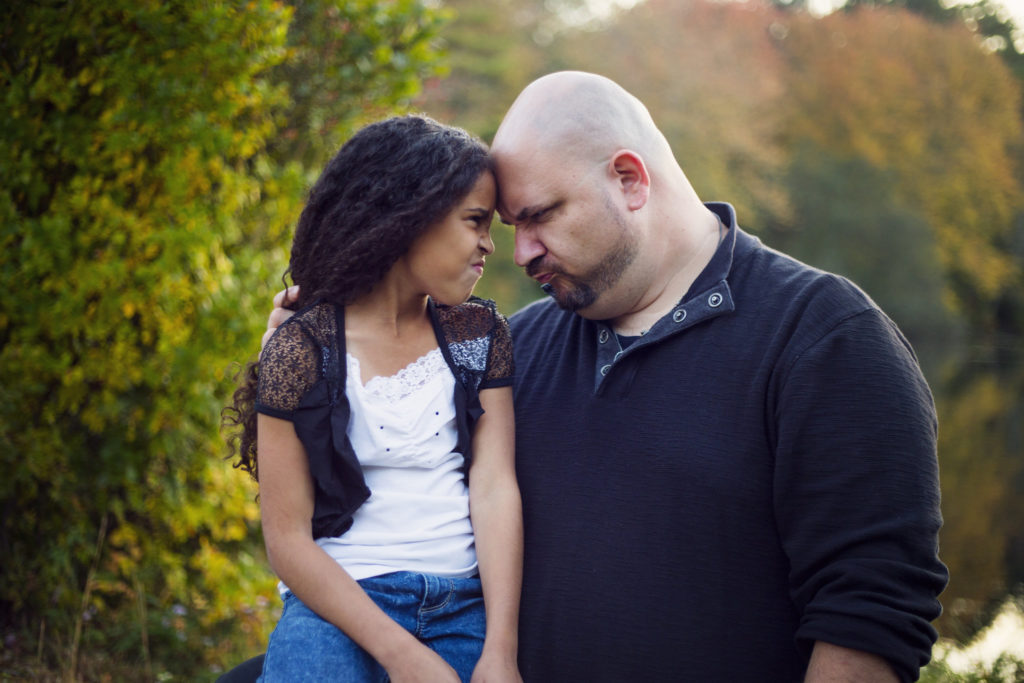LYC2020: Intimacy Free Relationships
The Intimacy Free behavior, believes that others are not reliable, dependable or trustworthy when it comes to his or her needs. It can be so frustrating to have to be vulnerable to others when all they are going to do is fail you, so you don’t bother with seeking closeness at all. You also go on to believe that others are not qualified to let in.
Happy New Years from TTW family. Every year we have wanted to start off the year talking about different ways we can love ourselves better. So let’s start off 2020 with our annual LYC2020.
I Hate Relationships

Can our willingness to have intimate relationship promote a healthy self? She was rough, tough, without emotion, negative, and as skeptical as skeptical could be and the last things she wanted was an intimate relationship with someone. Connie was about 13 years old when she started coming to my youth group; she fascinated me more and more because of her lack of emotion. She was a girl that desired a relationship but refused to let anyone in. Connie was insensitive to many when she would hear her peers talk about what they were going through emotionally. She found tears and crying a form of pure weakness and a character flaw.
What made this young lady so different than the other girls? While most kids warmed up to me after a few weeks, Connie was doing a great job of keeping her distance from me even though it seemed like I was wearing her down. On many occasions, I would sit with her and got connie to open up about her life outside of the church. In these conversations it became clear as to why Connie was the way she was. Even more interesting, was that even though what she was experiencing was very harsh moments, Connie refused to express any emotions about it all. To her, this was life and it explained why she looked at everyone else as soft and weak. What others complained about was nothing compared to Connie’s life.

Connie was a very neglected teenager, emotionally, mentally and spiritually. Her parents were very serious alcoholics and their verbal and physical abuse was heartbreaking; the things that they said to her, the things she saw and the beating she got, the things she was forced to do, gave me a better understanding of why she was so numb to everything. She hated her parents and if there was anything she wanted more, it was for her parents to truly die in their sins, as Sam and I would preach about, so they could go straight to hell; this was a prayer she prayed to come true for almost a year.
Connie came regularly to our youth services and watched as the other kids built strong bonds with me and my husband. She wanted the same thing but Connie was scared to embrace me because she felt I would leave her. She was used to being left, abused, abandoned and rejected. As she continued with us, it was not a shock that she hated herself; well if her parents didn’t show her that they loved her why should she love herself?
I Hate Intimacy
In our annual Love Yourself Challenge, I want to start a conversation on our approach to relationships. Why does our love or hate of relationship reflect how we see ourselves? Our need for relationship is even more powerful than our need for food. Just as much as our lung need air, our souls need relationship; it’s not a want but a detrimental part for our survival. Not being able to love who you are damages the healthy way in which you find positive relationships. So ask yourself these two questions…
- Am I worthy of being loved?
- Am I able to do what is needed to get the love I need?
Your sense of self is either positive or negative based on your answers. The belief in our self will essentially guide ones behavior in close relationships. The following is a list of four kinds of thoughts and behaviors that we may have in these encounters with those whom we love.
- The Insecure Relationship: I need and have to please my loved ones or I will be worthless and unlovable. Their relationship is fueled by fear of abandonment and rejection.
- The Chaotic Relationship: Chaos and abuse is more familiar than peace and harmony. You are unfamiliar with intimacy, deep friendships and are drawn to chaos. You may have the inability to know, understand and manage emotions, along with a compulsion to repeat the past.
- Secure Relationship: A willingness to love and be loved. You’re not afraid of emotions and have a willingness to seek and accept comfort. You can find safety in a relationship and takes responsibility for yourself.
- The Intimacy Free Relationship: These are those who run away from relationships or guard themselves because they are afraid of intimacy.
The fourth one is the one I’d like to talk a bit more about today. It was the kind that Connie had. The Intimacy Free behavior, believes that others are not reliable, dependable or trustworthy when it comes to his or her needs. It can be so frustrating to have to be vulnerable to others when all they are going to do is fail you, so you don’t bother with seeking closeness at all. You also go on to believe that others are not qualified to let in. In some cases those who feel this way are extremely judgmental and look for any kind of evidence that the other person is only out to hurt them in the long run.
In most cases, those who live by this behavior, they actually want someone to trust, but because of their false sense of value, they believe no-one else would value them as well. This also explains the lack of sympathy towards others who are in need of affection and love. The Intimacy free person refuses to be that needy.
Those who run away from intimacy feel that emotions and tears are just a sign of weakness, and a character flaws. They believe that everyone goes through things and we should just make the best of things because no one can be trusted. Do you, or someone you know, feel like people should just suck it up and stop their whining and move on?
Harden Hearts to Love

Why are these hearts so hardened to relationships? Well, let me explain something about Connie, she was never truly taught how to connect with people. Her parents never made her feel like relationships were safe. They made her feel as if she could be thrown away at any minute, so Connie learned to stop depending on others. She was never taught what true love and acceptance was; so she never knew how to give it in return. 1 Cor 12:12-13, 21-23 says,
For just as the body is one and has many members, and all the members of the body, though many, are one body, so it is with Christ. For in one Spirit we were all baptized into one body—Jews or Greeks, slaves[a] or free—and all were made to drink of one Spirit…
The eye cannot say to the hand, “I have no need of you,” nor again the head to the feet, “I have no need of you.” On the contrary, the parts of the body that seem to be weaker are indispensable, and on those parts of the body that we think less honorable we bestow the greater honor, and our unpresentable parts are treated with greater modesty,
One of the reasons many struggle with the Christian faith is because the God we serve is relational. Buddhism, Hinduism, Islam nor Secularism do not need others in order to accomplish their goal of enlightenment. Christianity demands us to depend on each other and this verse is perfect for that. To truly understand is God sees all of us as one body. Think about the different members of your body—like verse 21 says—the eye, nor any other part of your body, can’t look at another part of the body and say it doesn’t need it. Even if there is weakness, infections or deformities in different parts, you would never say you don’t need it. You would strengthen the weakness, aim to heal the infection or adjust to the deformity.
Imagine what it would look like if your legs tried to do what your mouth was intended for, or if your hands tried to operate as your lungs. Every part of you does what it is meant to do for the same goal, to take care of you. If any operated out of its physical function, it affects you overall physically. Just as your physical parts do what they do to care for you physically, we need our emotional parts to work right to help take care of ourselves emotionally.
Do you have a lot of do’s and don’ts because your goal in life is making sure that you are living at high performance levels without needing anyone? “Well of course Marsha doesn’t everyone have high standards?” Or maybe you are asking, “Is it wrong to want to protect myself? I just see where people are going to mess up, so I am keeping them all at a distance.”
Let me ask you a question. When you fail, and you know you have and will, who is there for you to lean on for support? Who helps you get back up and encourages you to continue forward? We all want to have someone to cry on and to lift us up when we feel weak. It’s in our DNA. We are built for relationships, but because of whomever hurt us however many times, we now place ourselves distant from what we were designed to do. No one likes to be vulnerable, and who wants to be hurt by someone they are close with? The truth is, it is going to happen, but it should never keep us from seeking the right kind of relationships needed to help build ourselves up. Ezekiel 36:25-26 says,
I will sprinkle clean water on you, and you shall be clean from all your uncleanness, and from all your idols I will cleanse you. And I will give you a new heart, and a new spirit I will put within you. And I will remove the heart of stone from your flesh and give you a heart of flesh.
A Heart of Flesh
I watched God do this with Connie—who secretly wanted to have a deep relationship with someone. When God finally got a hold of her stony heart, it was a painful process because she knew that in order to have the love she wanted, she needed to allow herself to be vulnerable, in need and weak. It was a process that took many months but each and every time she stripped away a layer of herself and left herself in God’s hands. Yes, she did experience hurt but she knew that loving people and allowing them to love her was better than where she was before.
Are you ready to love yourself by allowing others to love you? Let’s go through some practical things.
- Realize the need for others. You may think that your life is better without others but you will soon discover the pain and loneliness that accompanies unhealthy independence.
- Be willing to drop your pride. Pride and ego keeps us from seeing the truth about life. We think that we are our own god and we are the only ones we need to rely on but there will come a time when even the idol of self will let you down.
- Be willing to be vulnerable a little bit at a time.
In the up coming weeks I will be addressing the other relationship styles we wrestle with. When we have a different approach to others, we truly can love ourselves better. If you need additional help, please feel free to email us at thruthewinters@gmail.com or comment below.




4 Comments